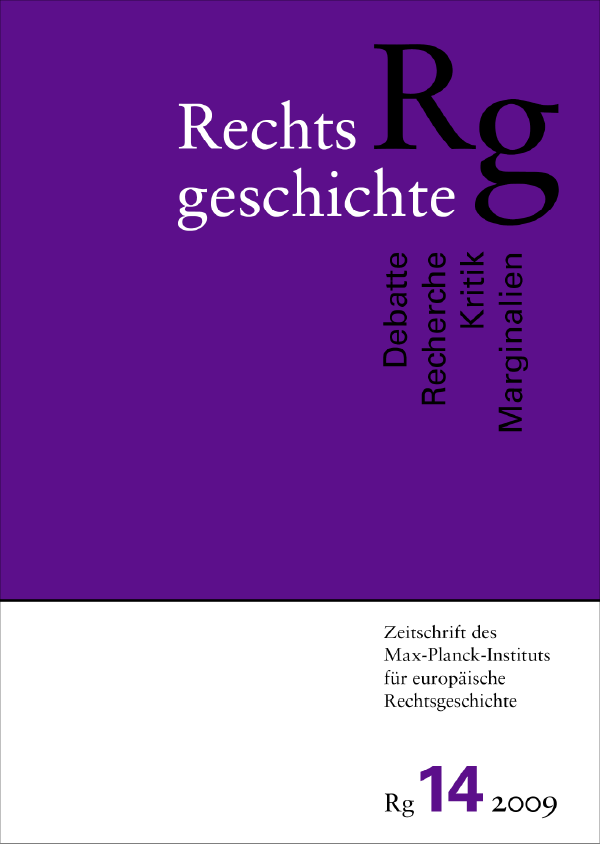Die »Verrechtlichung« heimlicher Ermittlungsmaßnahmen im Übergang vom Inquisitionsprozess des gemeinen Rechts zum reformierten Strafprozess des 19. Jahrhunderts
DOI:
https://doi.org/10.12946/rg14/062-083Abstract
The »juridification« of covert investigations in the transition from the ius commune inquisition process to the reformed criminal justice process of the 19th century, understood as a material (i. e. law creating) normative distinction between true or wrongful circumstances, is a complex phenomenon. This paper traces the introduction of covert investigations into the law of criminal procedure. It takes its starting point in the uncodified, but nevertheless legally sophisticated search and seizure of letters or the use of informers in the ius commune process. Influences of the French Revolution on the development of law, the 19th century’s early individual legislation, but mainly the tumultuous times before the Revolution of 1848 and the great surge of single procedural codes in the mid 19th century are the subject-matter of this analysis. This research has unearthed some surprising facts: Juridification affects various measures in quite different ways. At the same time, it is shaped by subjects which are hardly comparable with one another (monarchs, parliaments etc.), and it is associated with the production of the criminal process as a subject that manifests itself particularly in the redefining of the pre-trial phase.
Downloads
Published
How to Cite
Issue
Section
License
Copyright (c) 2009 Author

This work is licensed under a Creative Commons Attribution-NonCommercial-NoDerivatives 3.0 Unported License.





